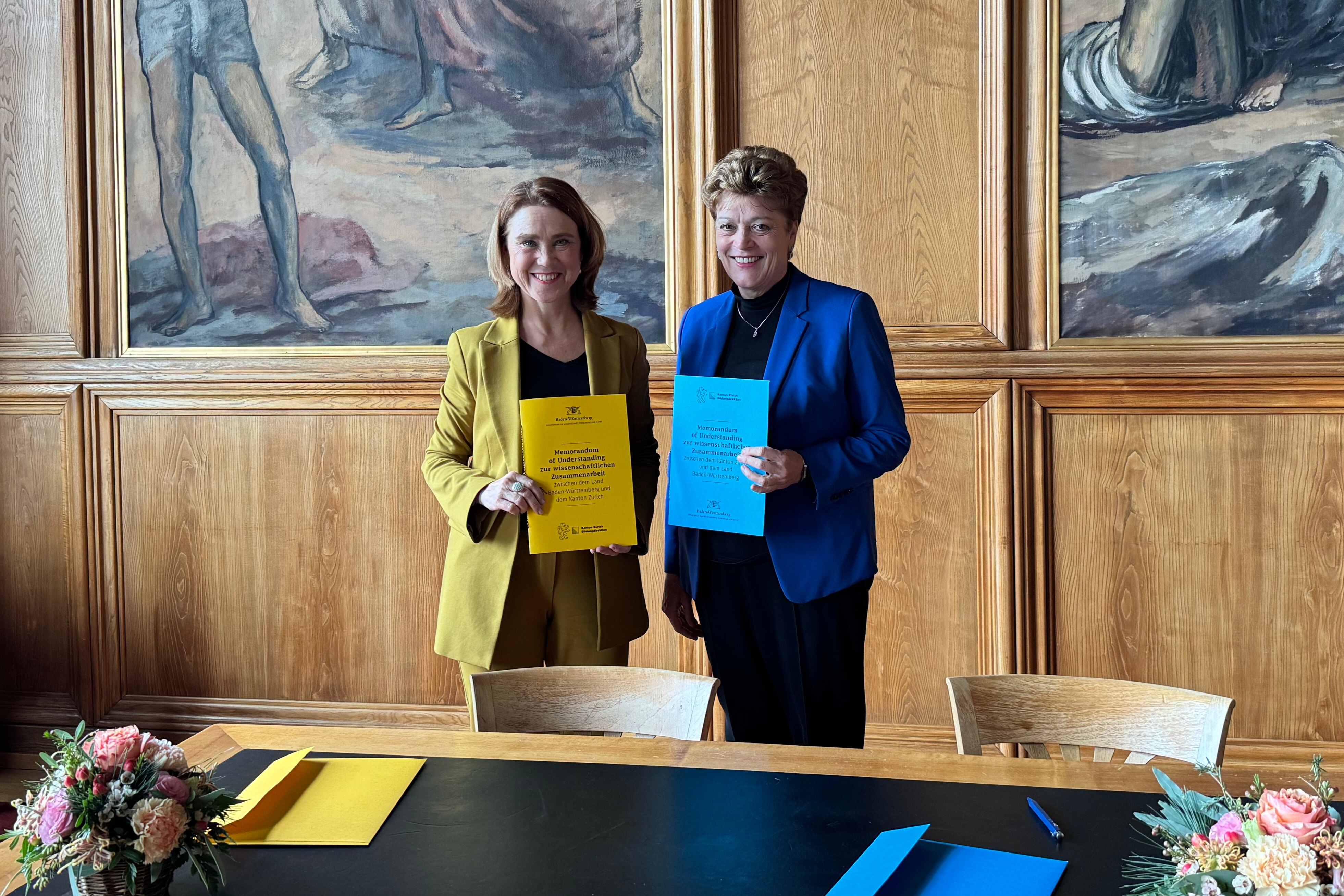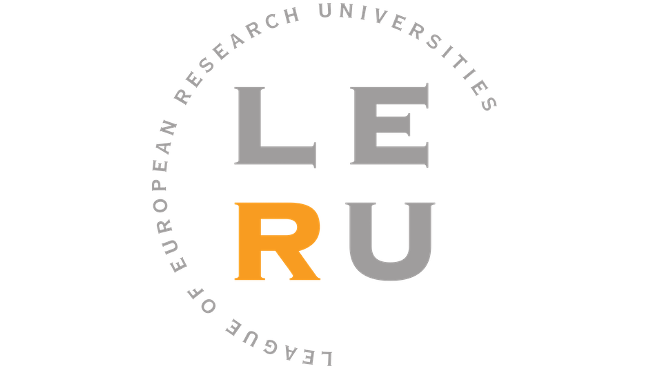UZH Welcomes Baden-Württemberg and Zurich to Strengthen Research Partnership
UZH has hosted the signing of a Memorandum of Understanding (MoU), a formal agreement outlining the cooperative framework between the German state Baden-Württemberg and the Canton of Zurich.

The MoU signifies a commitment to strengthening and expanding the research partnership, specifically targeting sectors such as life sciences, environmental sciences related to climate change, artificial intelligence, digital transformation, and aerospace, where both regions are already recognized as leaders.
The agreement was signed by Petra Olschowski, State Minister of Science, Research, and the Arts of Baden-Württemberg, and Silvia Steiner, Head of the Department of Education of the Canton of Zurich, underscoring a mutual interest in strengthening research ties. “We aim to further strengthen the competitiveness of the research and innovation locations of Baden-Württemberg and Zurich. Therefore, close scientific cooperation between our regions is important”, emphasized Silvia Steiner. Petra Olschowski, Minister of Science, Research, and the Arts in Baden-Württemberg, added: “The declaration signed today is an impulse and a starting signal for our universities to expand and deepen their cooperations.”
In a brief greeting, Michael Schaepman, President of UZH, highlighted the significance of the event as a step towards strengthening the rich ties between the regions, which are both economic “powerhouses” in their respective countries. He noted the potential for increased collaboration and celebrated the cultural and academic proximity that unites Switzerland with its European neighbors. The leadership of other cantonal higher education institutions, including ZHAW, ZHdK, and PH Zurich, were also present, marking their commitment to this collaborative effort.
The partnership is further bolstered by the “BW-ZH Seed Money Fund”, which will finance initiatives that may include travel and hosting of joint events, catalyzing the exchange of ideas and expertise.
Formalizing a collaborative framework
This move is particularly relevant given the backdrop of Switzerland's ongoing non-association with Horizon Europe and ERASMUS+, which poses an obstacle to scientific collaboration. The agreement leverages the Canton of Zurich’s strong economic position, where the contribution of over 116,000 companies fuels more than 20% of Switzerland's GDP. In Baden-Württemberg, a similar spirit of innovation pervades, with a significant portion of the state's GDP invested in research and development (nearly 6%), echoing Zurich's commitment to fostering environments where innovation can thrive.
During the signing event, researchers highlighted ongoing collaborative projects that exemplify this partnership's goals. For example, the "Spatial Genetics" project, which is focused on biodiversity collaboration with the University of Freiburg’s IDENT network was presented by Meredith Schuman, Assistant Professor of Spatial Genetics at UZH. Furthermore, Birgit Kleim, UZH Professor of Experimental Psychopathology and Psychiatry, introduced the "DynaMORE" initiative that is focused on medical and psychology collaborations with the University of Freiburg, reflecting the interconnectedness of the Swiss and German research landscapes.
UZH as a keystone in Swiss-German scientific cooperation
With an extensive network of research collaborations, UZH stands as a pivotal link to over 330 partnerships in Baden-Württemberg, underscoring the strategic importance of these academic relationships. This agreement is expected to enable UZH, along with its German counterparts, to address pressing scientific challenges jointly.
Anne Nuria Boekhout







